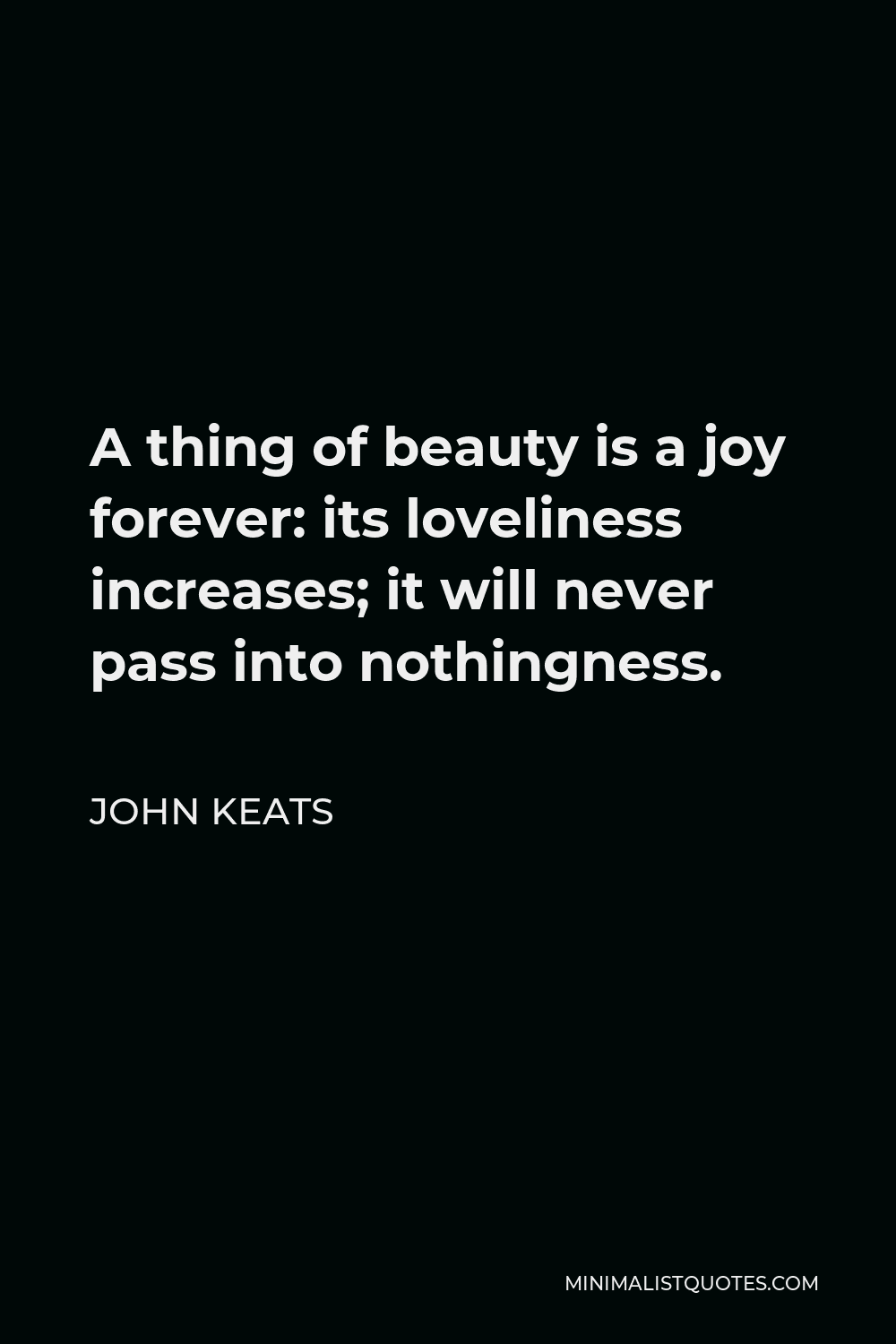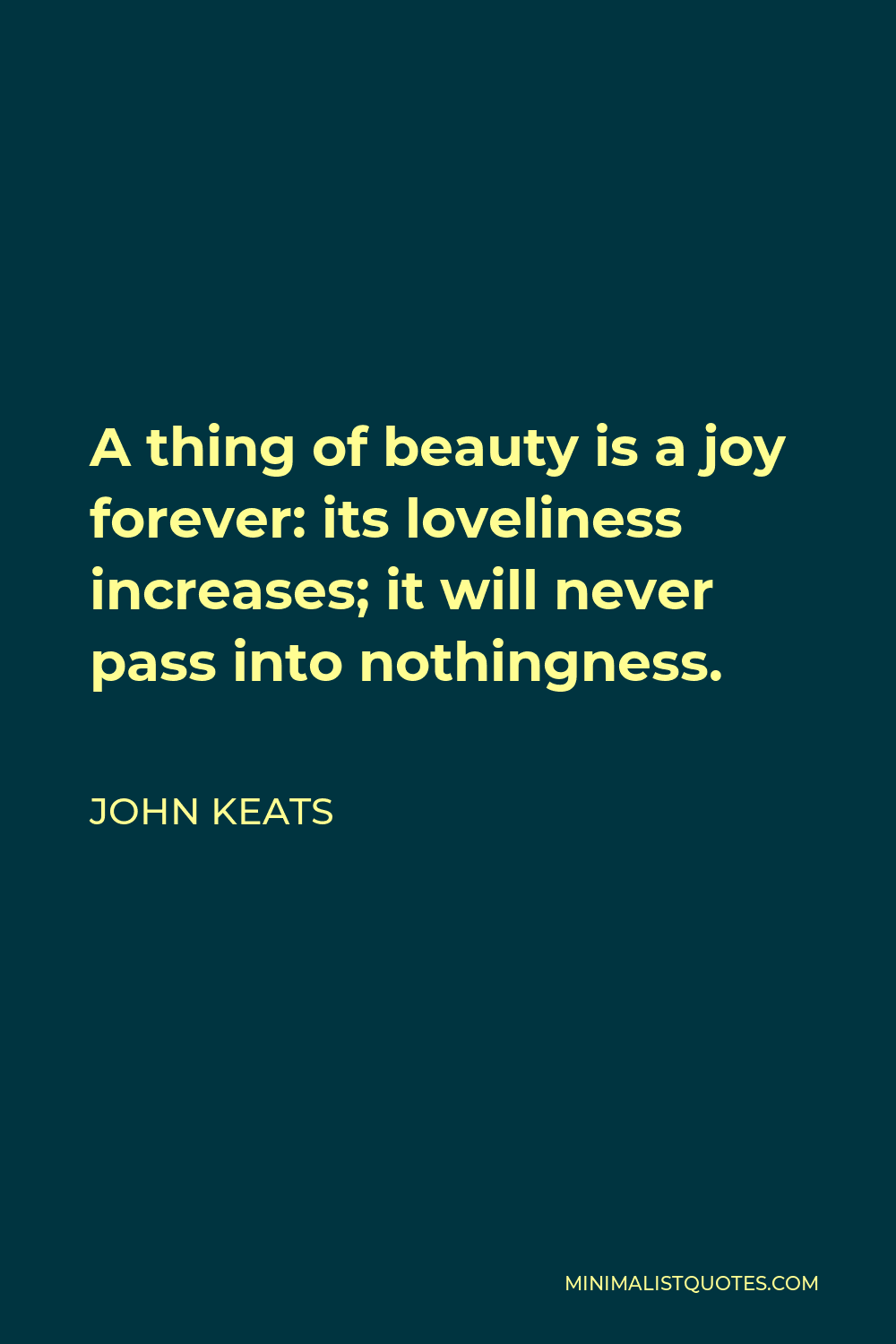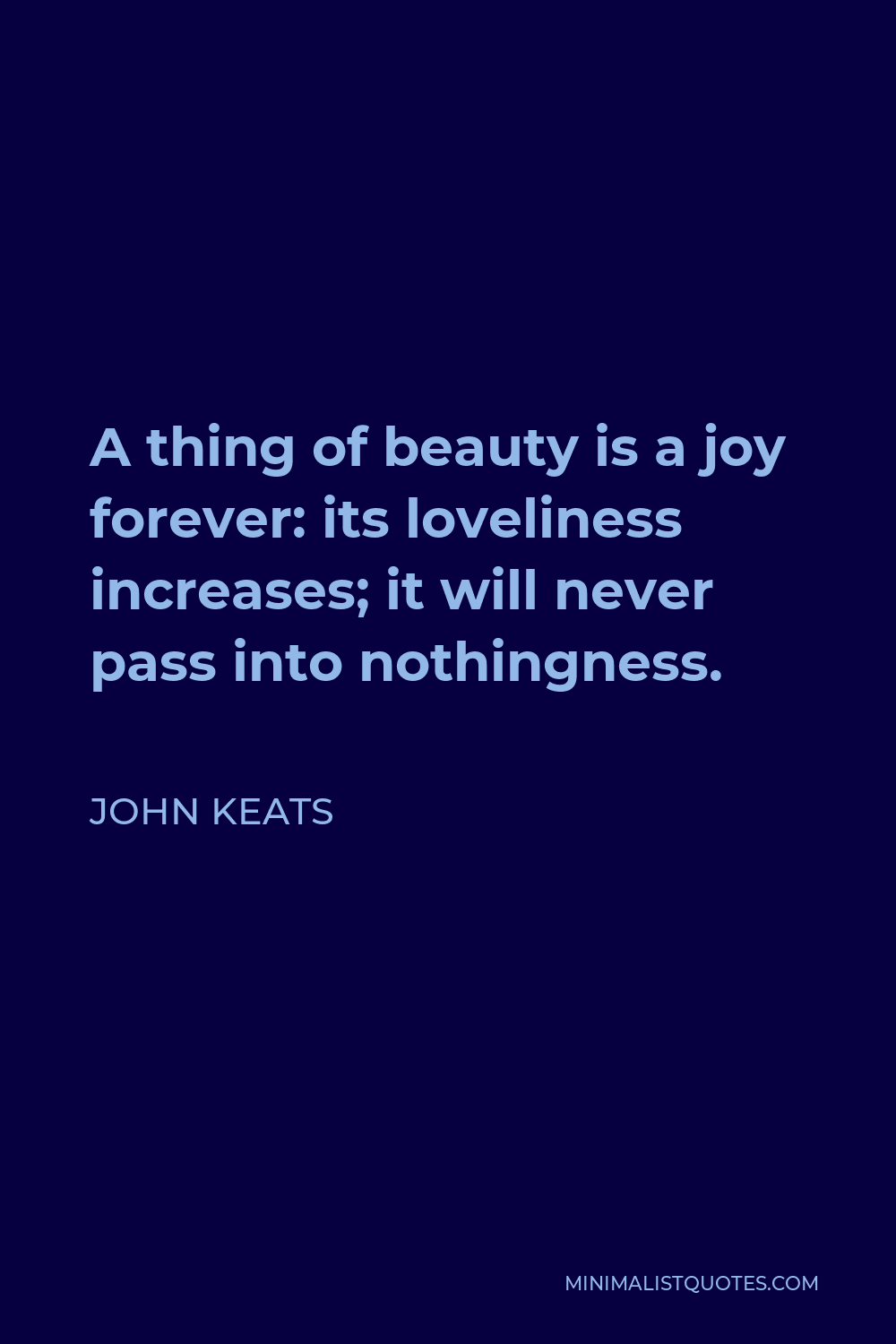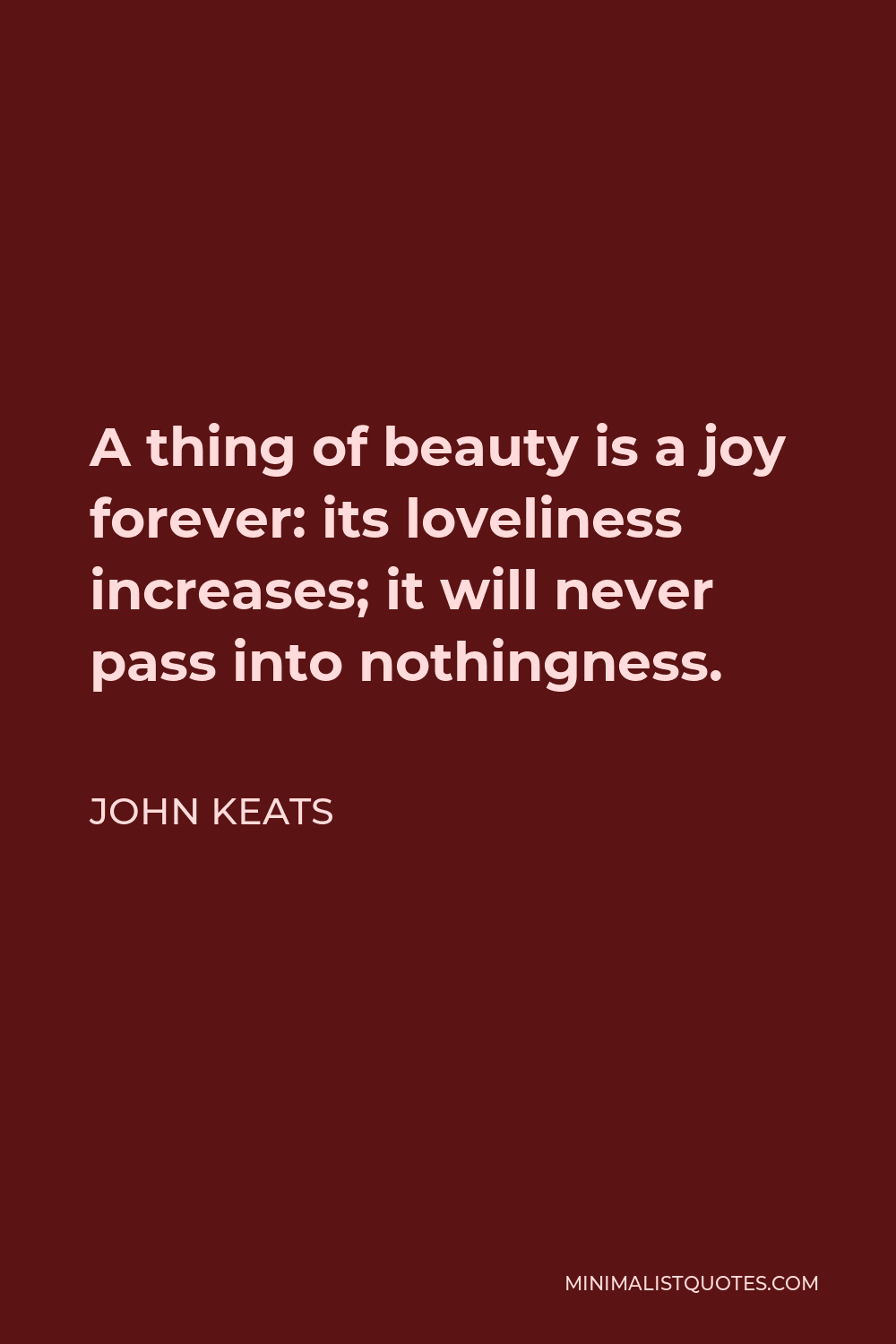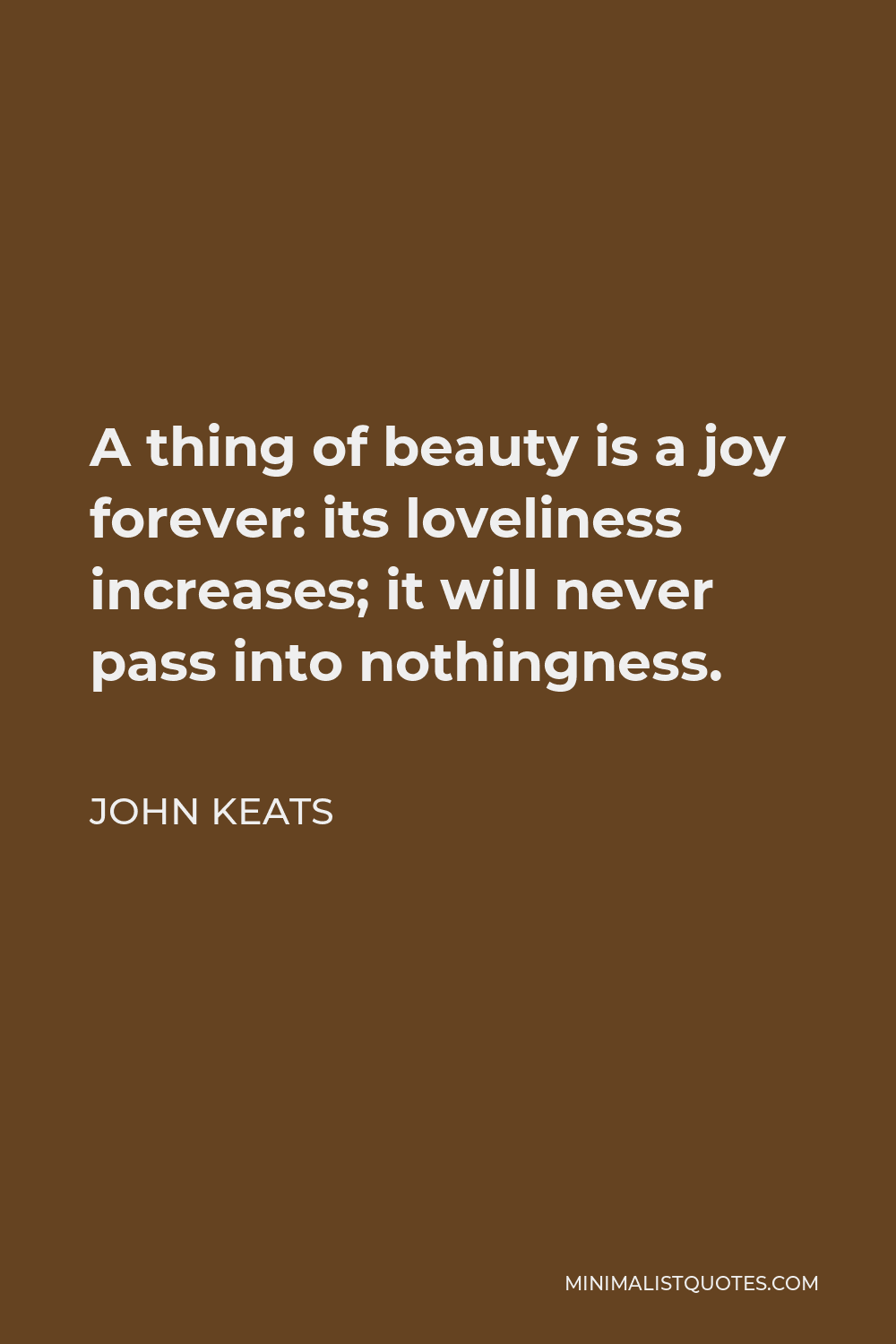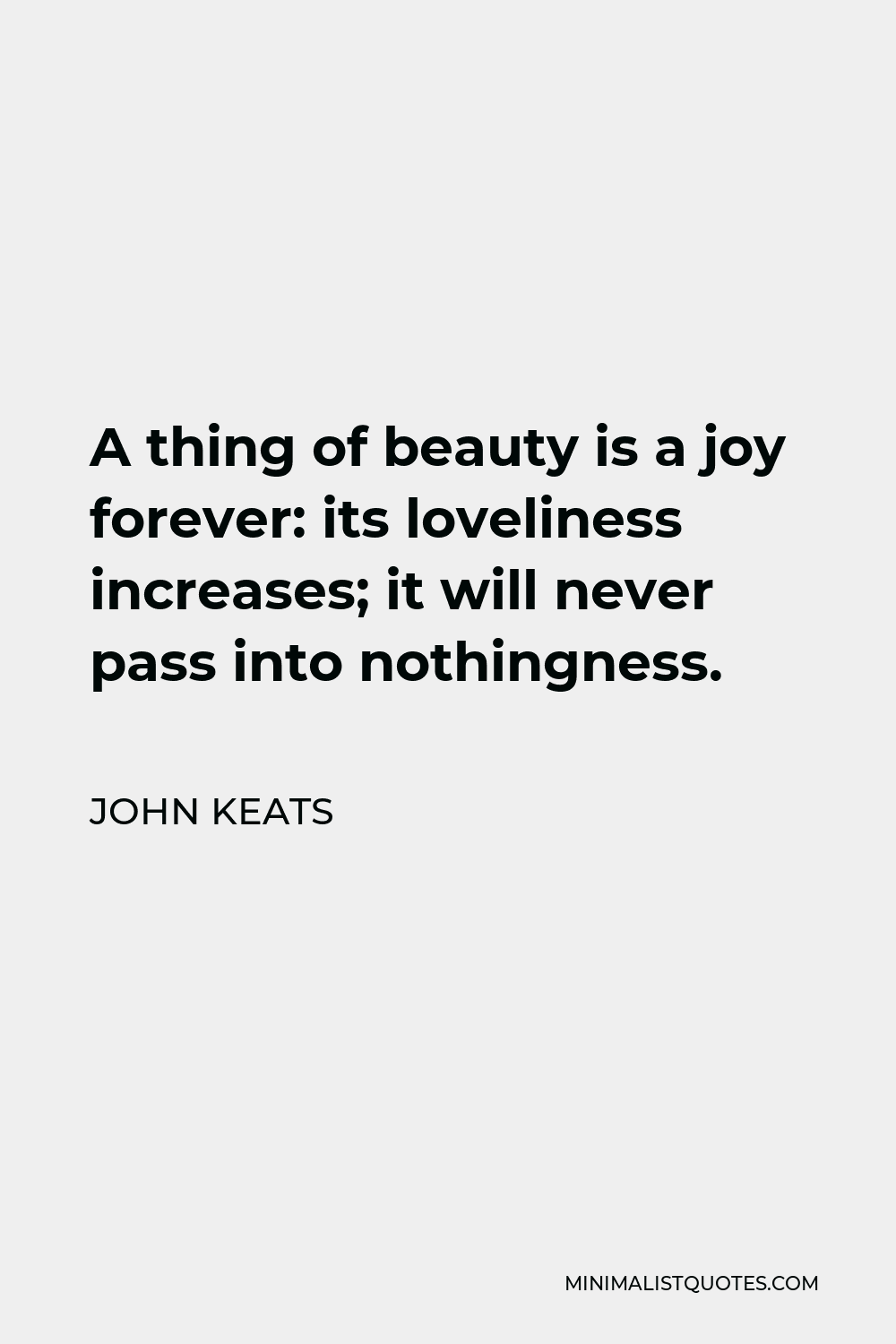Love is my religion – I could die for it.
JOHN KEATSA thing of beauty is a joy forever: its loveliness increases; it will never pass into nothingness.
More John Keats Quotes
-





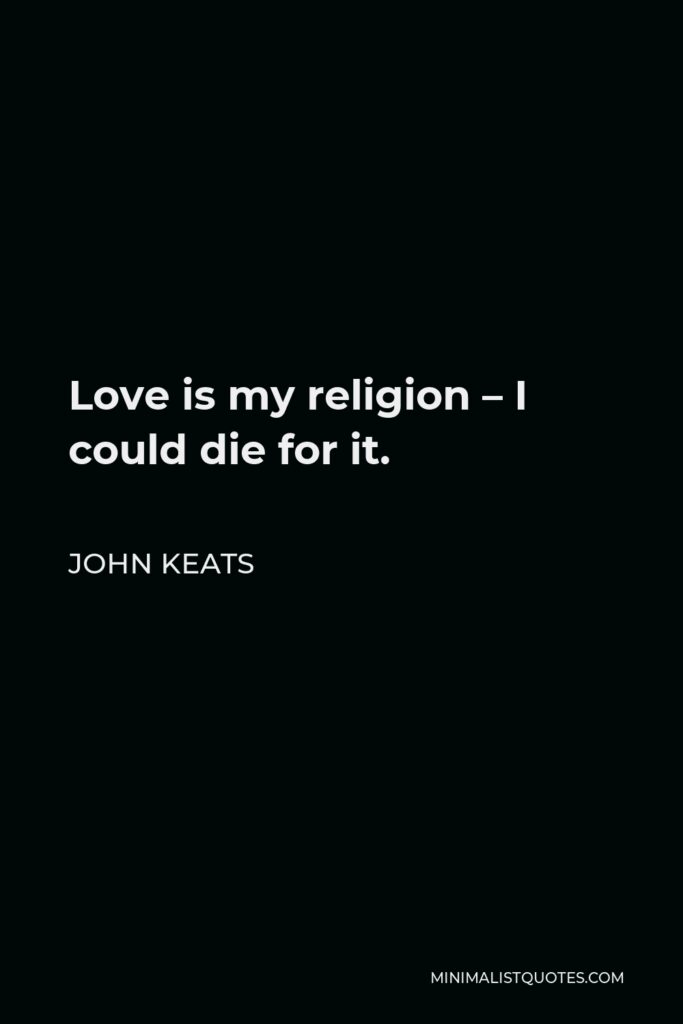

-





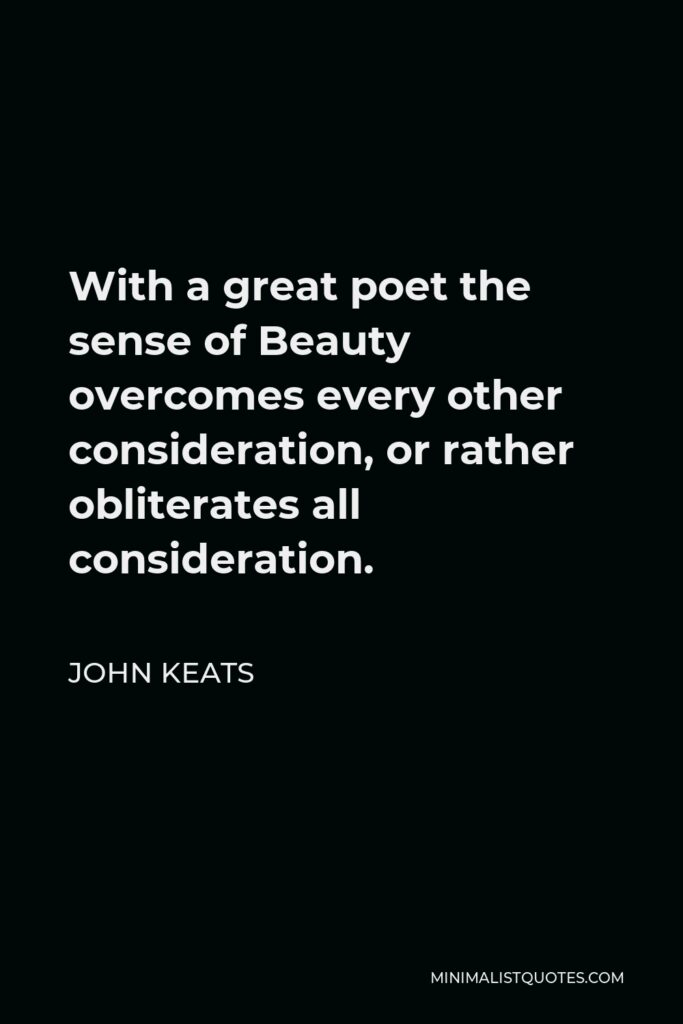

With a great poet the sense of Beauty overcomes every other consideration, or rather obliterates all consideration.
JOHN KEATS -





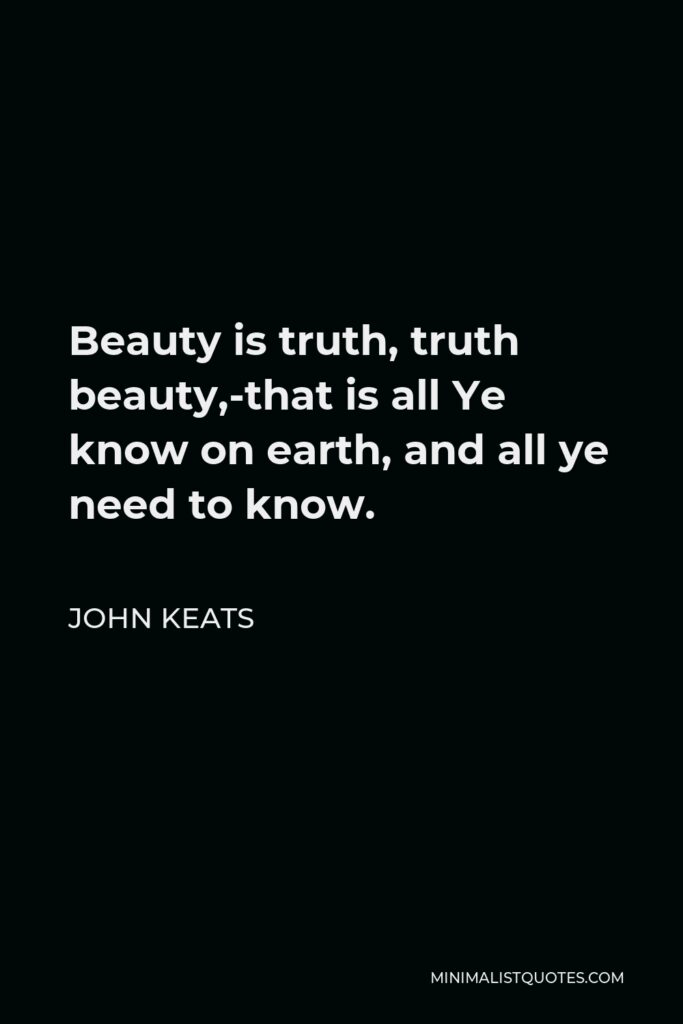

Beauty is truth, truth beauty,-that is all Ye know on earth, and all ye need to know.
JOHN KEATS -





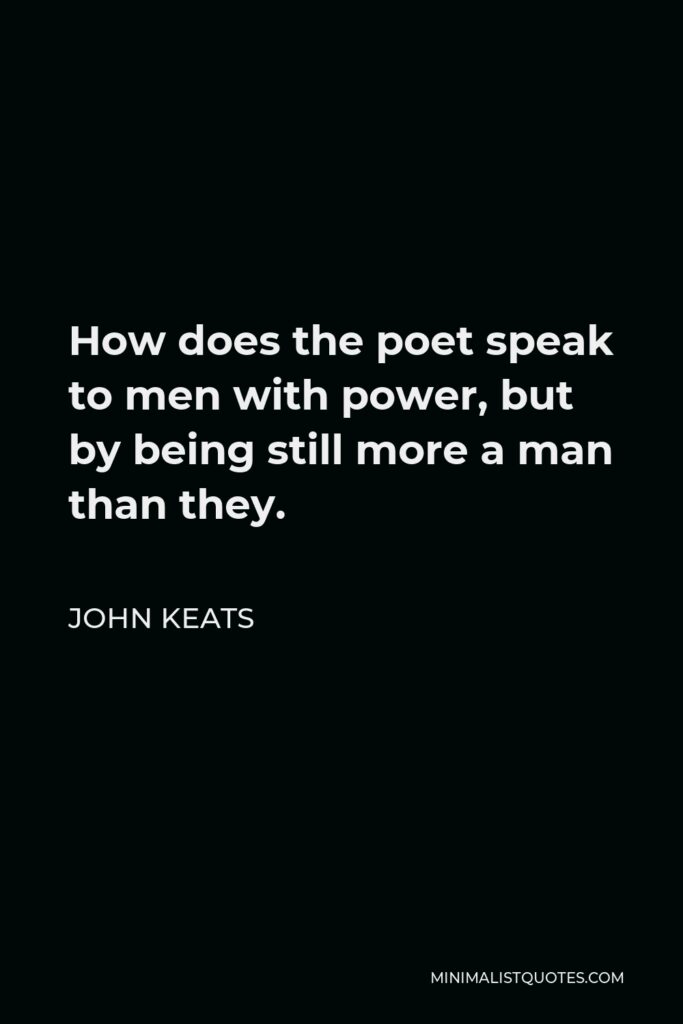

How does the poet speak to men with power, but by being still more a man than they.
JOHN KEATS -





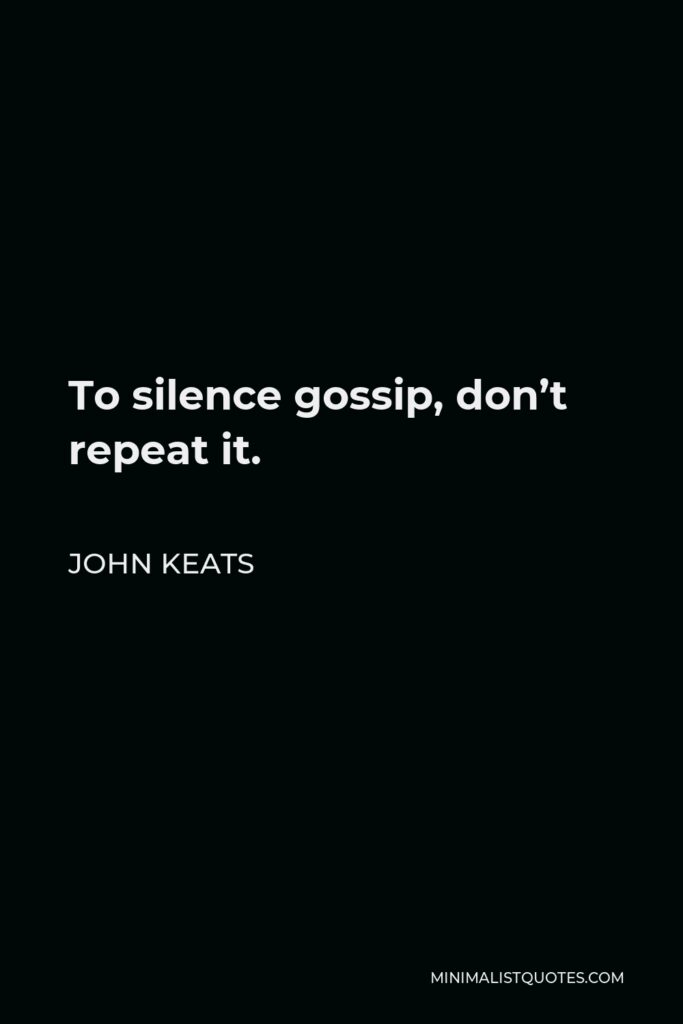

To silence gossip, don’t repeat it.
JOHN KEATS -





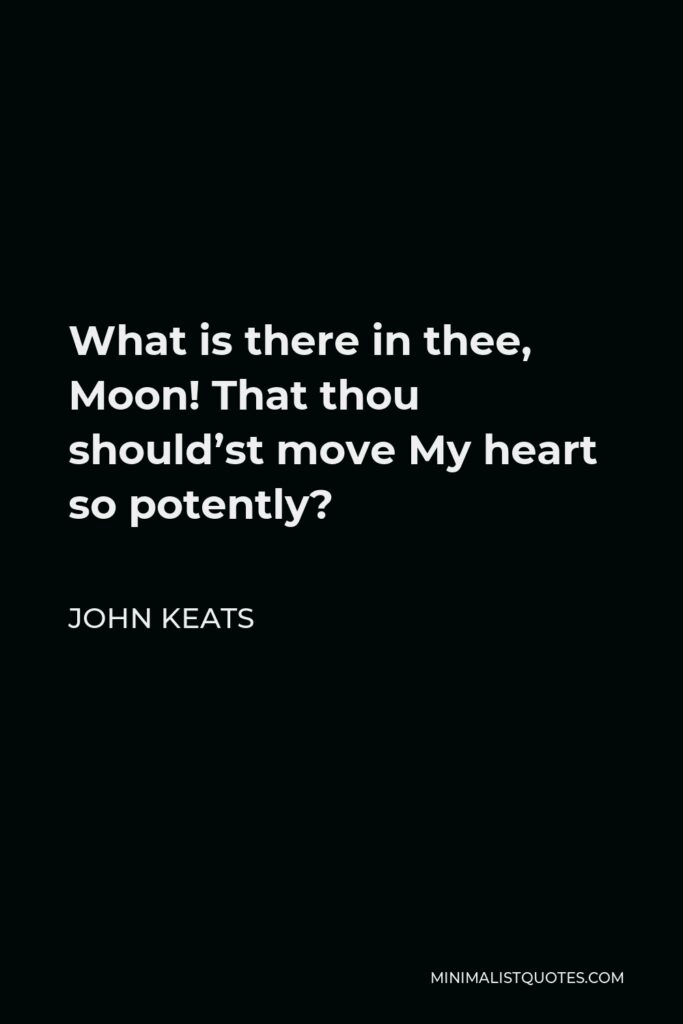

What is there in thee, Moon! That thou should’st move My heart so potently?
JOHN KEATS -





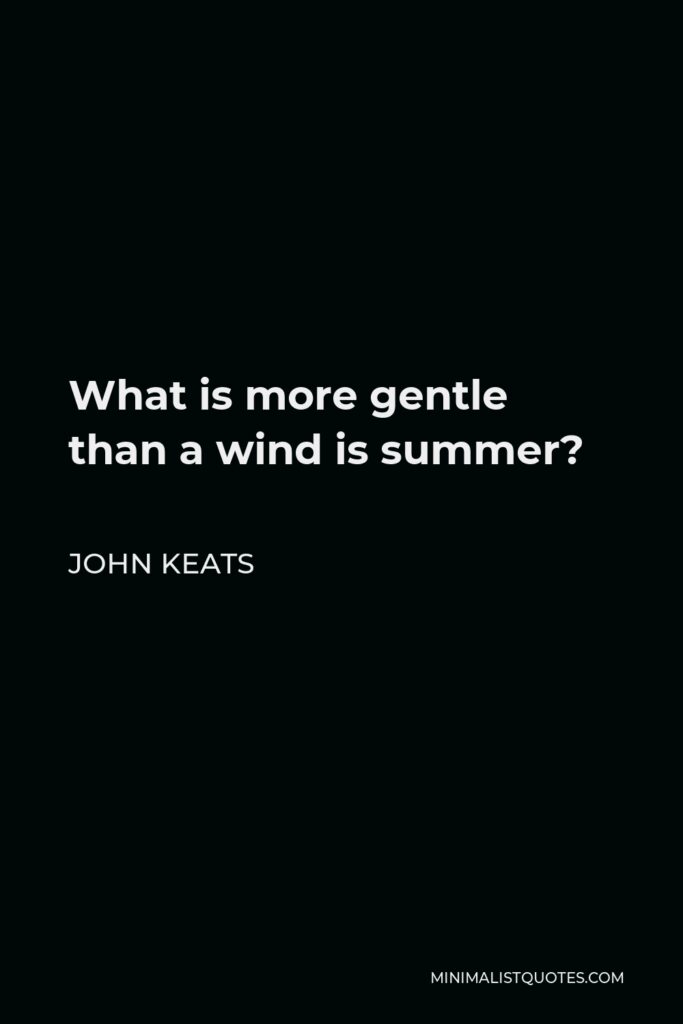

What is more gentle than a wind is summer?
JOHN KEATS -





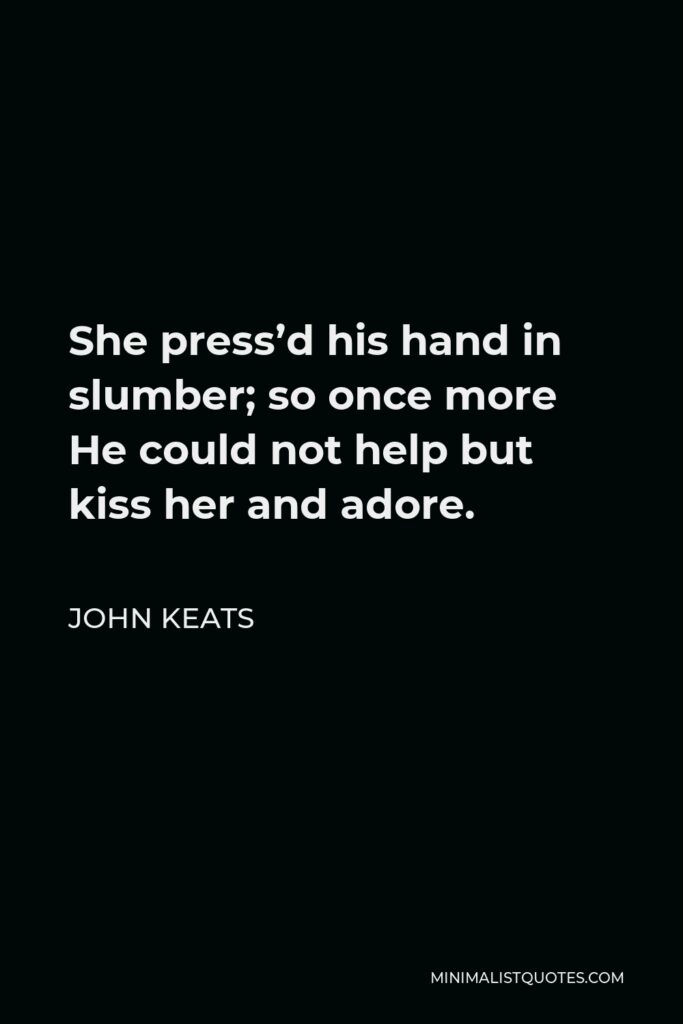

She press’d his hand in slumber; so once more He could not help but kiss her and adore.
JOHN KEATS -





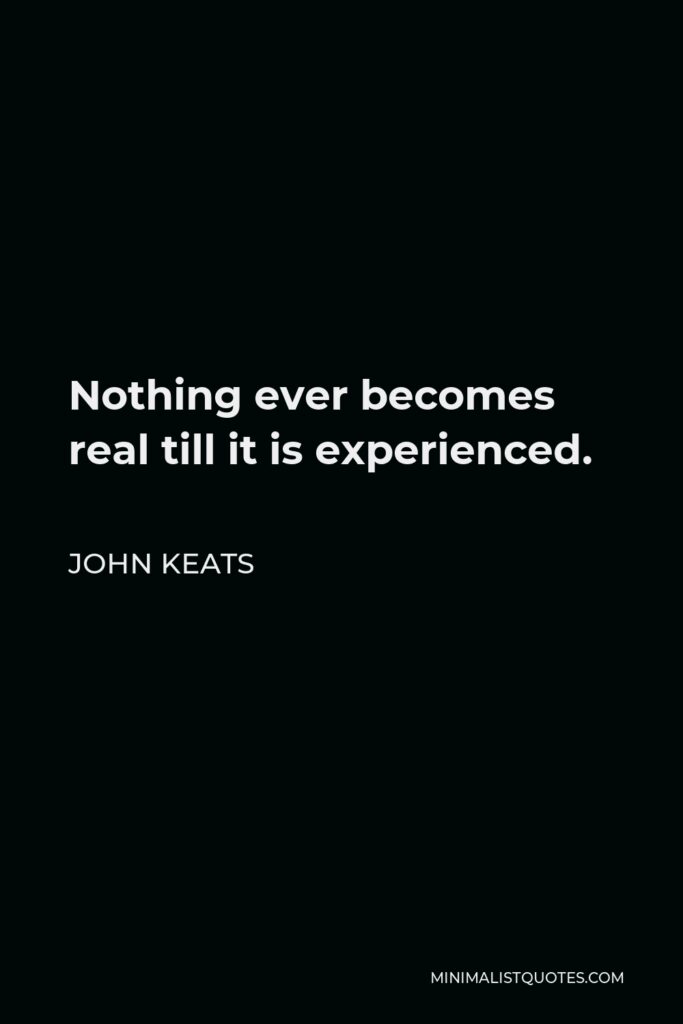

Nothing ever becomes real till it is experienced.
JOHN KEATS -





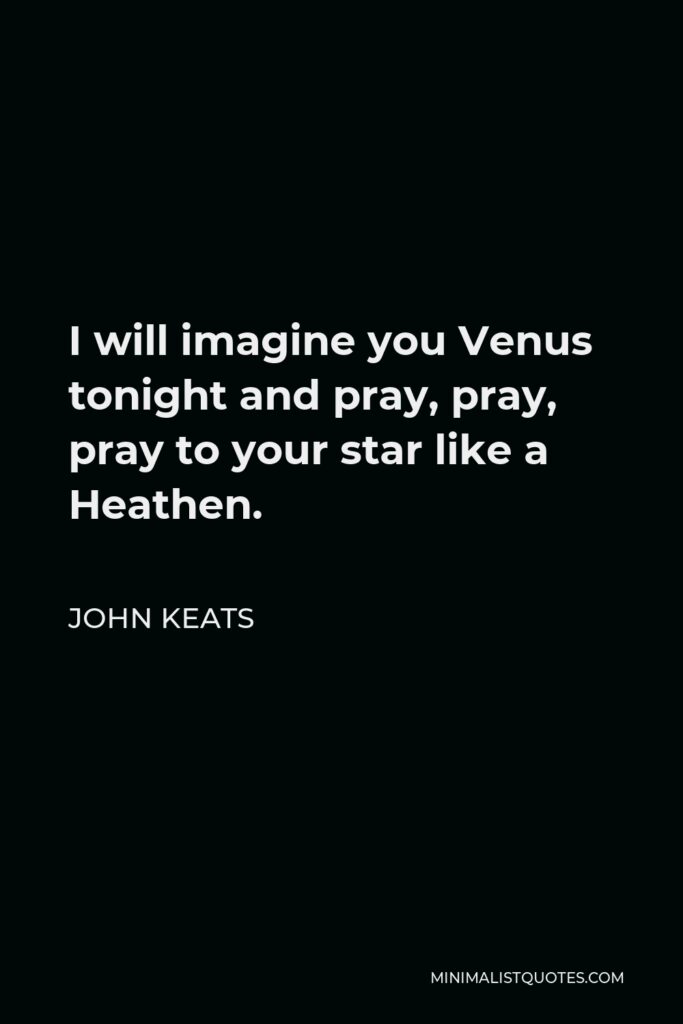

I will imagine you Venus tonight and pray, pray, pray to your star like a Heathen.
JOHN KEATS -







Its better to lose your ego to the One you Love than to lose the One you Love to your Ego
JOHN KEATS -





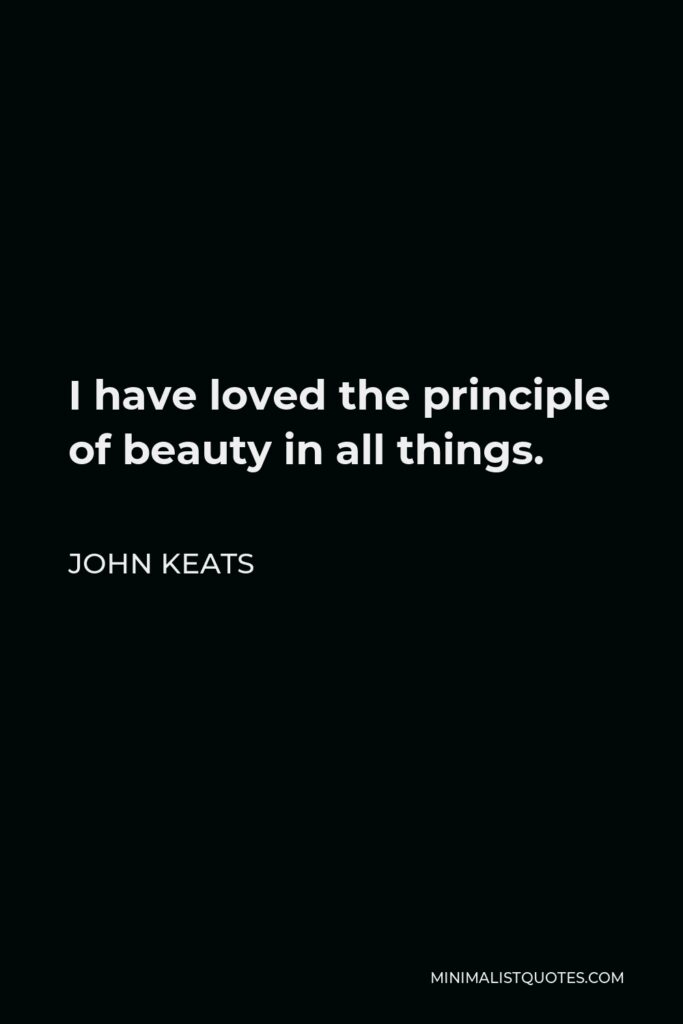

I have loved the principle of beauty in all things.
JOHN KEATS -





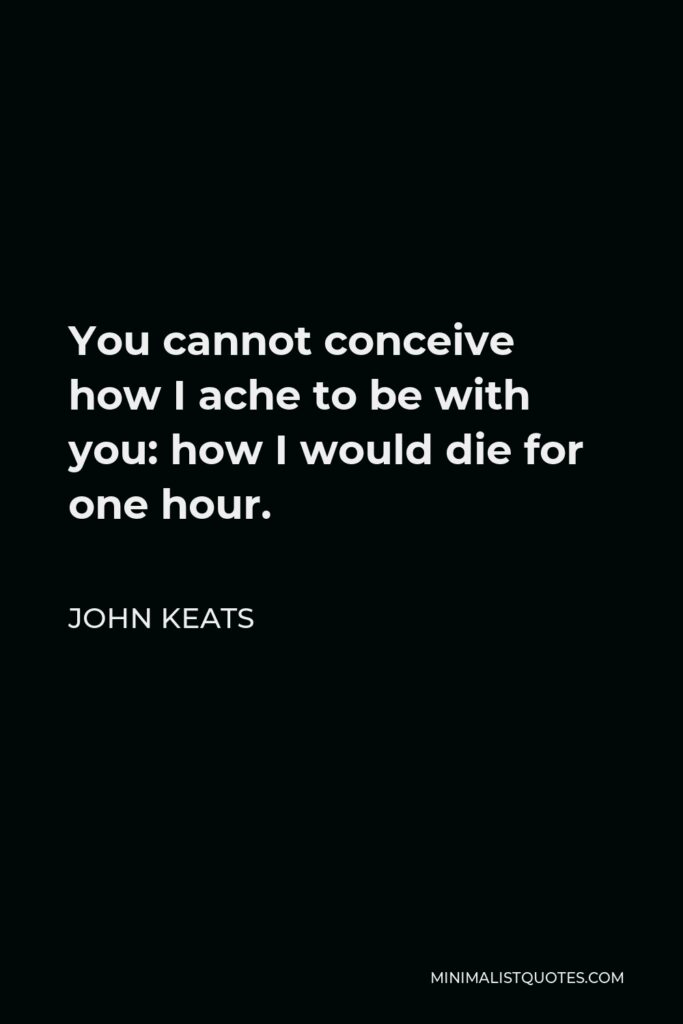

You cannot conceive how I ache to be with you: how I would die for one hour.
JOHN KEATS -





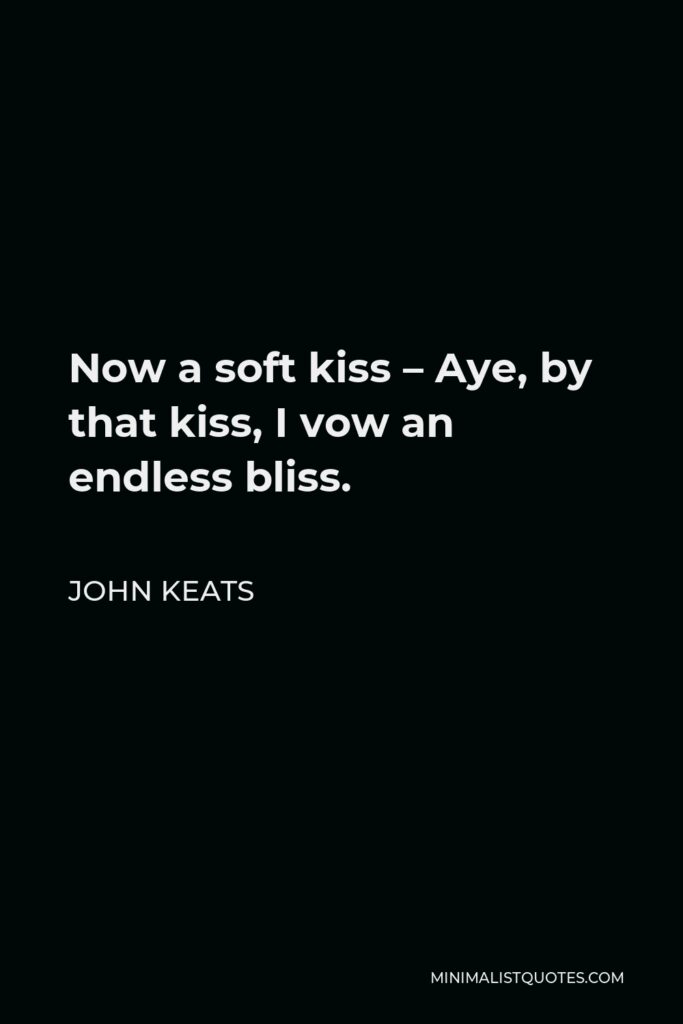

Now a soft kiss – Aye, by that kiss, I vow an endless bliss.
JOHN KEATS -





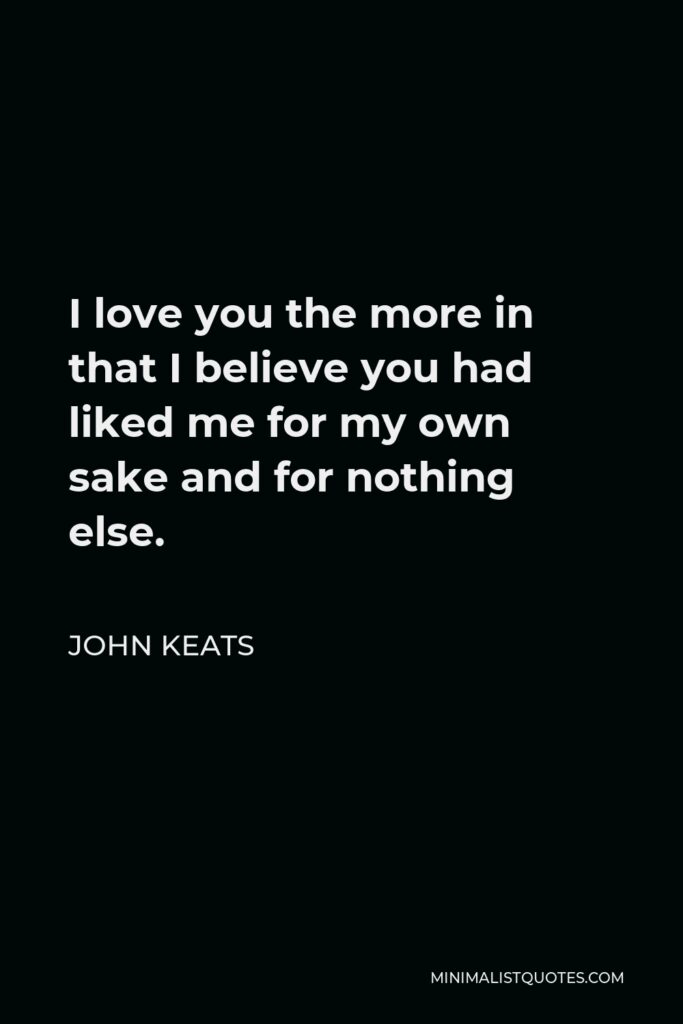

I love you the more in that I believe you had liked me for my own sake and for nothing else.
JOHN KEATS -





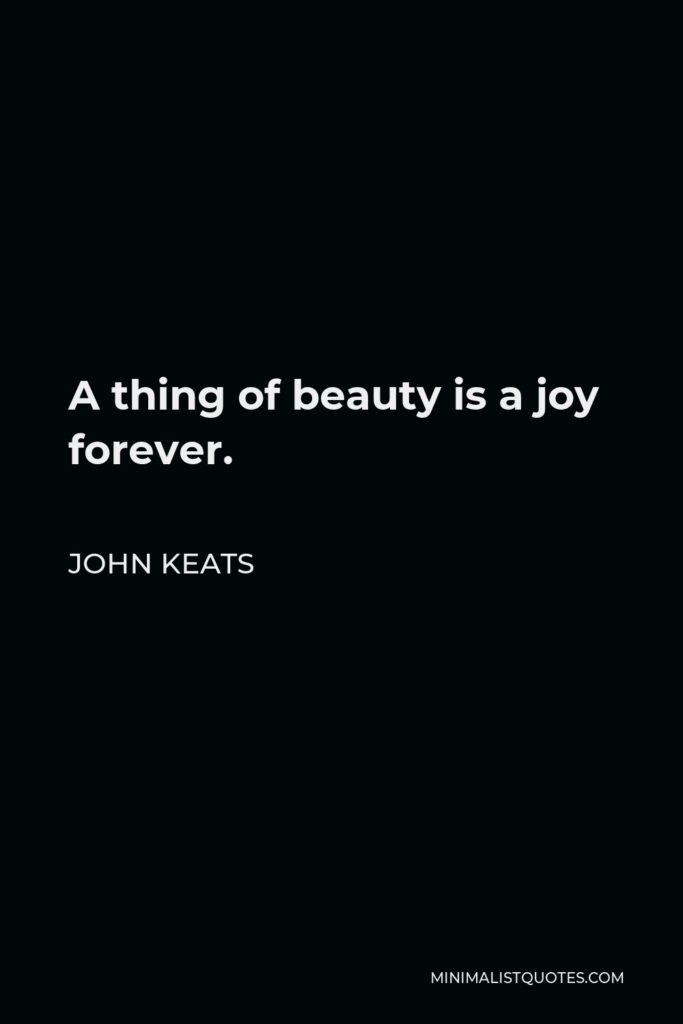

A thing of beauty is a joy forever.
JOHN KEATS
